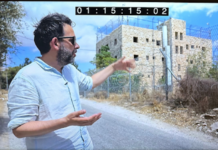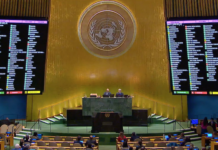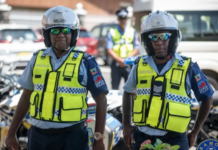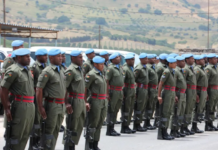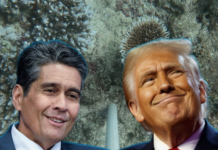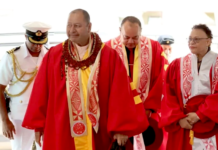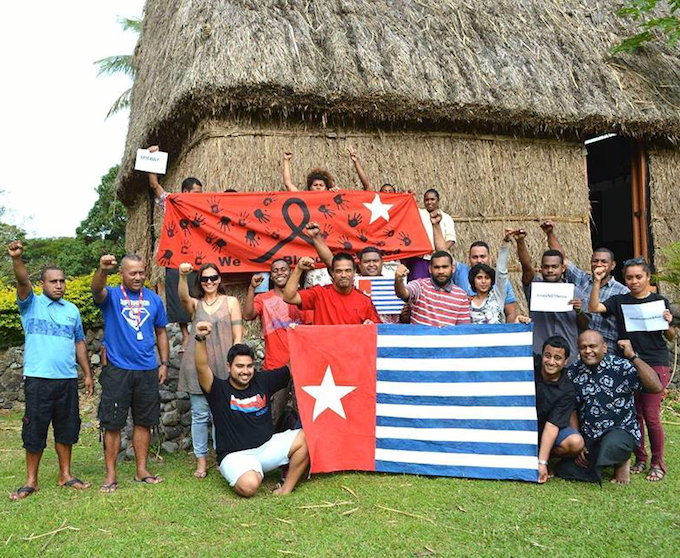
Pacific Media Centre Newsdesk
The Asian Human Rights Commission (AHRC) has condemned the unlawful deprivation of liberty of Papuans which has has been happening frequently lately.
The AHRC has learned that the Indonesian Security Forces have been using excessive force and flaunting their authority to illegally arrest indigenous Papuans.
They are simply exercising their rights to freedom of expression and opinion and peaceful assembly, the watchdog agency said in a statement.
For instance, take the case which took place on August 20, 2017. Police officers of the Fak-Fak police station (Polres Fak-Fak) arbitrarily arrested 24 indigenous Papuans, said AHRC.
They are members of the National Committee for West Papua (KNPB). The AHRC was informed that they were illegally arrested because they were registered to attend a meeting organised by KNPB in Fak-Fak Regency, West Papua province.
Previously, the AHRC had noted some similar cases faced by members of KNPB Papua.
Yanto Waine, a member of the National Committee for West Papua (KNPB), was illegally detained in the Nabire police station (Polres Nabire) after distributing leaflets to the public.
Students arbitrarily arrested
Twenty nine student activists, mostly Papuan students, were arbitrarily arrested in Yogyakarta province. An additional 32 student activists in Jakarta and 46 student activists in Semarang were also arbitrarily detained.
Considering the massive unlawful deprivation of liberty against indigenous Papuans, the AHRC said it strongly recommended that the government “re-evaluate its policy and the behaviour of its Security Forces”.
The government should ensure that there was no policy in practice that clearly violated or went against the International Covenant on Civil and Political Rights (ICCPR). Indonesia became a state party to this covenant by enacting Law No.12 of 2005.
Article 19 of the ICCPR states:
1. Everyone shall have the right to hold opinions without interference.
2. Everyone shall have the right to freedom of expression; this right shall include freedom to seek, receive and impart information and ideas of all kinds, regardless of frontiers, either orally, in writing or in print, in the form of art, or through any other media of choice.
3. The exercise of the rights provided for in paragraph 2 of this Article carries with it special duties and responsibilities. It may therefore be subject to certain restrictions, but these shall only be such as are provided by law and are necessary:
(a) For respect of the rights or reputations of others;
(b) For the protection of national security, public order, and public health or morals.
Freedom of assembly
Moreover, the Indonesian Constitution 1945 (UUD 1945) clearly guarantees such rights.
Article 28 of the Constitution states: “the freedom to associate and to assemble, to express written and oral opinions, etc., shall be regulated by law.” Further, Article 28 paragraph E states: “Every person shall have the right to the freedom to associate, to assemble and to express opinions.”
Under the Constitution, Indonesia, Law No. 39 of 1999 on Human Rights. Article 24 paragraph 1 states: “Everyone has the right to peaceful assembly and association.” Article 6 paragraph 1, relating to indigenous People states: “In the interests of upholding human rights, the differences and needs of Indigenous Peoples must be taken into consideration and protected by the Law, the Public and the Government.”
“Let us look into the cases of human rights violations, in particular massive unlawful deprivation of liberty in Papua. It has been proven that the government has failed to ensure that the Security Forces obey and respect the above-mentioned rights,” the AHRC statement said.
“Even security forces violate the Indonesian Criminal Procedure (KUHAP), which regulates steps and requirements of arrest and detention.
“The government should be aware that extreme restrictions against the right to freedom of opinion, expression and also peaceful assembly, should be conducted based on the Law. It is the National Law which regulates such restrictions and they should not violate or go against the ICCPR itself.”
The AHRC said as outlined in General Comments of the ICCPR No. 35 paragraph 12 “An arrest or detention may be authorised by domestic law and nonetheless be arbitrary. The notion of ‘arbitrariness’ is not to be equated with ‘against the law’. It must be interpreted more broadly to include elements of inappropriateness, injustice, lack of predictability and due process of law, as well as elements of reasonableness, necessity and proportionality.”
‘End stigmatisation’
The AHRC called for the Indonesian government to stop any patterns and forms of unlawful deprivation of liberty against indigenous Papuans.
“The right to freedom of expression, opinion and peaceful assembly must be protected and respected,” the AHRC statement said.
“Furthermore, the Indonesian Security Forces should not subjectively interpret the Law and put an end to the stigmatisation that all political activities conducted by Papuans are crimes. The AHRC urges the government to release all those persons arrested with no criminal charges laid against them.”






